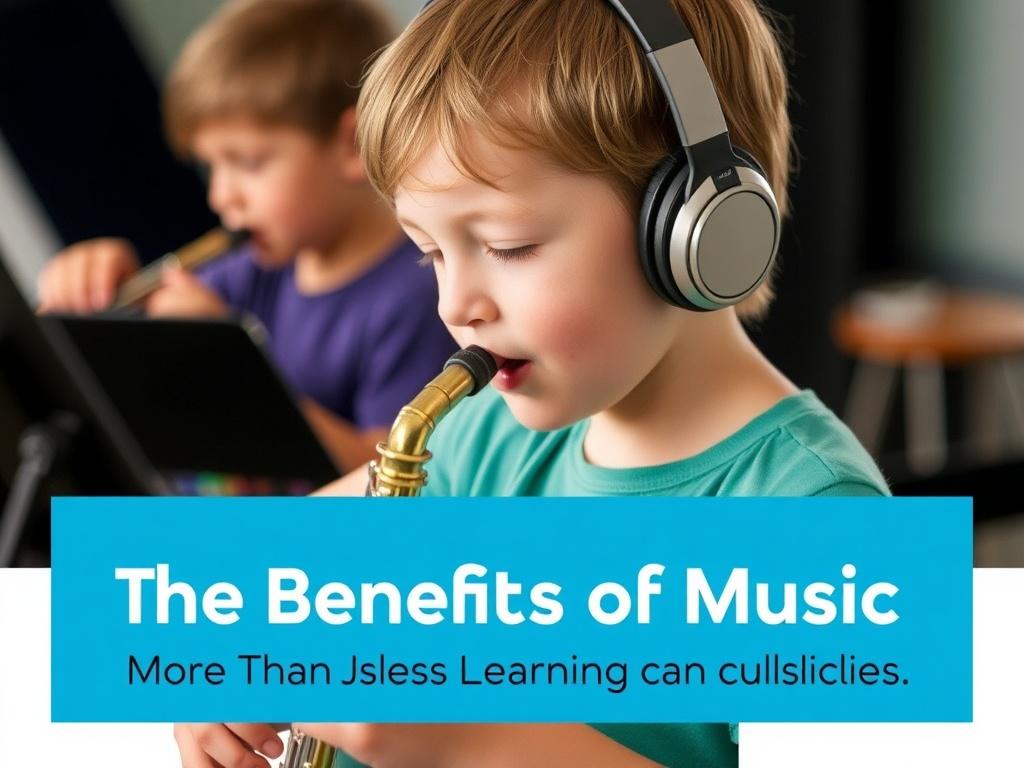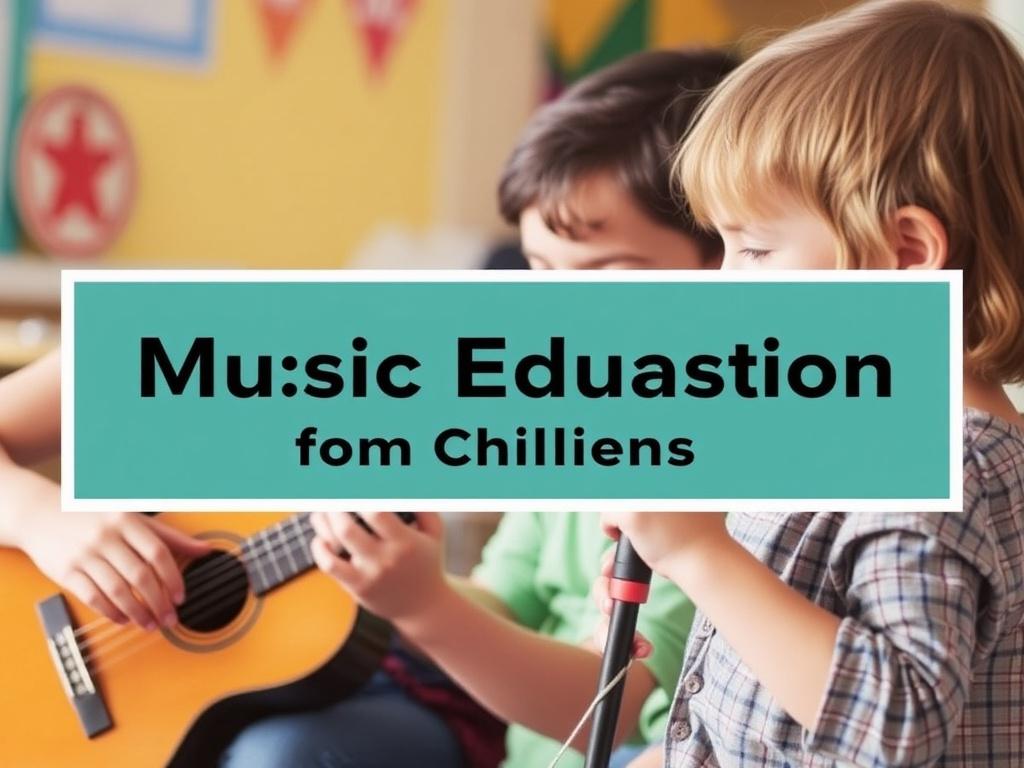SQLITE NOT INSTALLED
Music has been an integral part of human culture for thousands of years. From ancient drum rhythms to modern symphonies, music speaks a universal language that transcends borders and generations. But did you know that music education for children contributes far beyond just learning tunes and notes? It plays a crucial role in shaping a child’s development—emotionally, cognitively, socially, and physically. In this comprehensive article, we’ll explore the profound benefits of music education for children and how it can remarkably impact their everyday lives and futures.
Understanding Music Education: More Than Just Learning an Instrument

When people think of music education, they often imagine children learning to play the piano or the violin. While mastering an instrument is part of it, music education encompasses a broad spectrum of activities. These include singing, rhythm exercises, music theory, music appreciation, and even composing and improvising. Music education for children provides a holistic learning experience that touches different areas of brain development and nurtures creativity.
Moreover, music education is not limited to formal lessons. It also includes participation in school choirs, bands, orchestras, and musical theater. These group activities give children a platform to learn cooperation, discipline, and how to express themselves through sound.
The Role of Music Education in Early Childhood Development
Introducing music education to young children is one of the most effective ways to stimulate their brain development during the critical early years. Babies and toddlers respond naturally to rhythm and melody, often showing great interest in music. Studies have found that babies who are exposed to music education tend to develop better listening skills, memory, and language abilities.
When children engage in singing or clapping to a beat, they strengthen neural pathways that help with auditory processing and timing, which are important for reading and speaking. Music education also encourages children to use their imagination, helping them visualize stories behind songs or create their own musical patterns.
Enhancing Cognitive Skills and Academic Performance Through Music Education
One of the most widely discussed benefits of music education for children is its positive effect on cognitive development. Numerous studies have demonstrated that children who participate in music lessons tend to perform better academically compared to their peers who do not study music.
Here’s why music education can have such a powerful impact on cognition:
- Improved Memory: Learning to play music involves memorizing notes, rhythms, and lyrics. This practice boosts both auditory and visual memory, which translates into better memory skills in other subjects.
- Enhanced Language Skills: Music training enhances the brain’s ability to process sounds, which improves children’s ability to recognize speech patterns and read effectively.
- Boosts Mathematical Abilities: Music involves counting beats, understanding patterns, and grasping fractions (like half notes or quarter notes), which parallels mathematical thinking.
- Better Concentration and Attention: Playing an instrument requires sustained focus. This skill helps children improve their attention span in classroom settings.
| Benefit of Music Education | Impact on Cognitive Skill | Academic Correlation |
|---|---|---|
| Learning Rhythms and Beats | Improves pattern recognition | Supports math skills like fractions and sequencing |
| Memorizing Melodies | Enhances auditory and visual memory | Aids language and reading development |
| Practicing Instrumental Techniques | Develops fine motor skills and coordination | Contributes to better handwriting and attention |
| Singing and Ear Training | Refines listening skills and pitch recognition | Supports speech comprehension and phonetic awareness |
Building Emotional Intelligence and Social Skills Through Music Education

Music education for children serves as an emotional outlet, allowing young learners to express feelings they may not yet be able to articulate verbally. Whether performing a soulful ballad or participating in a lively group rhythm game, children learn to channel their emotions, develop empathy, and better understand themselves and others.
Group music activities such as choirs, ensembles, or bands inherently teach children important social skills. Children learn teamwork, patience, listening, and cooperation as they synchronize their efforts with others. The shared goal of performing a piece of music creates a sense of belonging and community.
Also, performing in front of audiences, whether small or large, helps children build self-confidence and overcome stage fright. This confidence often spills over into other areas of life, improving communication skills and social interaction.
How Music Education Encourages Discipline and Goal Setting
Learning music is a journey filled with practice, repetition, and gradual improvement. When children commit to music education, they also learn valuable habits of persistence and self-discipline. Practicing their instrument regularly teaches them to set goals, manage their time, and push through frustrations.
Depending on their age and interests, children may work toward goals like mastering a difficult piece, performing at a recital, or passing music theory exams. These achievements provide a sense of accomplishment, enhancing their intrinsic motivation.
Physical and Motor Skills Development Through Music Education
While we often think about music education’s mental or emotional benefits, it also plays an important role in physical development. Playing instruments involves precise hand-eye coordination, fine motor skills, and dexterity. From pressing piano keys to bowing a violin, children develop neuromuscular control.
In younger children, especially, rhythm and movement exercises complement motor development. Activities such as clapping, tapping, or dancing to music encourage body awareness and coordination. These skills benefit children not only in sports and physical play but also in daily tasks requiring steady and controlled movements.
Music Education and Cultural Understanding
Music is deeply connected to culture, history, and identity. When children engage with music education, they also gain exposure to different musical styles, traditions, and histories from around the world.
This exposure fosters cultural awareness and sensitivity. Children learn to appreciate diversity and the richness of global traditions. For example, learning about African drumming, Indian classical music, or Latin American rhythms introduces new perspectives and bridges cultural gaps.
Encouraging Creativity and Innovation Through Music
Music education doesn’t just involve following notes—it also encourages children to explore their own sonic ideas. Through improvisation, composition, and songwriting, children can experiment with sounds, express unique ideas, and develop creative thinking skills.
This process of creativity can extend into other academic and life areas. It helps children approach problems with an open mind and recognize alternative solutions. Creativity fostered through music education supports innovation and adaptability.
How Parents and Educators Can Support Music Education for Children
Parents and educators play a crucial role in encouraging children to explore music. Here are some practical tips to support music education:
- Create a musical environment at home: Play different kinds of music, sing together, and encourage movement and dance.
- Enroll children in music lessons: Whether formal or informal, regular instruction builds skill and confidence.
- Attend concerts and performances: Exposure to live music inspires and motivates children.
- Provide access to musical instruments: Even simple instruments like keyboards, drums, or recorders can spark interest.
- Encourage group music participation: Join choirs, bands, or school music clubs to promote teamwork.
- Celebrate milestones and progress: Positive reinforcement keeps children enthusiastic and motivated.
Addressing Common Misconceptions About Music Education
Some people believe that music education is only for children who have natural talent or that it’s just a hobby with little practical value. However, the benefits of music education for children extend well beyond talent. Music education can be tailored to any child’s interests and abilities, fostering enjoyment and learning regardless of “talent.”
Others worry about the costs or time involved, but there are many affordable and flexible music programs available that fit diverse family situations. Community centers, youth orchestras, and school programs often provide accessible opportunities.
Music Education and Technology: A Modern Approach
With the rise of digital technology, music education has evolved in exciting ways. Interactive apps, online tutorials, and virtual lessons enable children to learn music anytime and anywhere.
Technology also opens doors to new musical styles and creative possibilities. Children can compose music electronically, experiment with sounds, and share their creations globally.
Conclusion: The Lifelong Impact of Music Education for Children
It’s clear that the benefits of music education for children go far beyond simply learning to play an instrument or read sheet music. Music education nurtures the mind, body, and heart. It improves cognitive skills, boosts academic performance, fosters emotional intelligence, encourages creativity, and builds physical coordination.
By encouraging music education for children, parents, educators, and communities invest in a well-rounded foundation that can enrich a child’s life at every stage. Music opens doors, builds confidence, and connects people across cultures and generations.
Whether your child aspires to become a professional musician or simply enjoys playing for fun, music education offers valuable lessons and experiences that last a lifetime. So, let the music play and watch the incredible journey of growth unfold.
